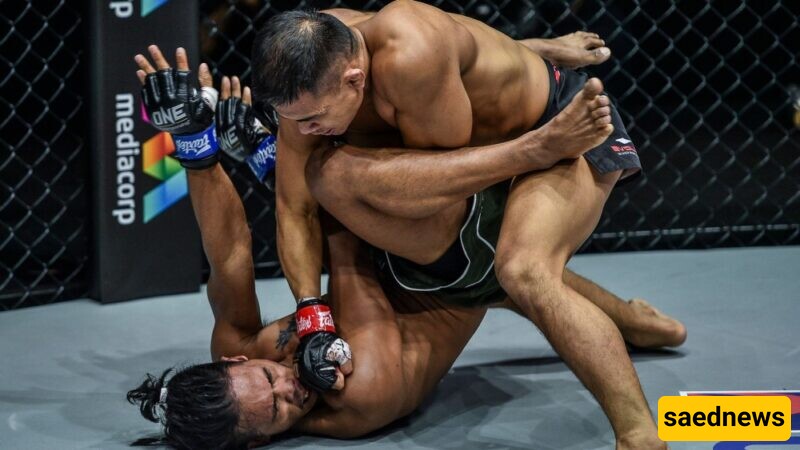SAEDNEWS: Pankration, also known by various names such as Traditional Pankration, Pangkration, Pangration, Pankrazion, and more, is a martial art and ancient sport rooted in the earliest athletic competitions of the world, specifically the Ancient Olympic Games.

According to SAEDNEWS, Pankration (Greek: Παγκράτιο) is a form of martial art and combat sport that was introduced to the Ancient Olympics in 648 BCE. Some historians regard Pankration as the most popular event in the Ancient Olympics, while others consider it the first organized combat method in human history. The sport combined elements of boxing, freestyle wrestling, and Greco-Roman wrestling. In Greek mythology, its invention is attributed to the battles of Hercules and Theseus. Today, Pankration competitions continue and are recognized as one of the wrestling styles by the United World Wrestling (UWW).
Pankration is recognized as the first military combat system and the oldest martial art and athletic competition in the world. The Greeks, renowned for their athletic skills and military techniques before the Common Era, highly valued Pankration.
According to Philostratus, a wrestling and pankration champion from 68 BCE during the 178th Ancient Olympiad, Pankration was the most valuable combat method in the Ancient Olympics. It was also a crucial and effective training method for soldiers and military personnel. In his view, the best pankratiasts were those physically adept as both the best boxers among wrestlers and the best wrestlers among boxers. Psychologically, courage and endurance were essential traits for this sport.
The word "Pankration," known as the sport of the ancient gods, is derived from two Greek words: "Pan" (all) and "Kratos" (power or force). It translates to "all power" or "all force." However, in essence, a "Pankratiast" is someone who uses both physical strength and mental strategy to overcome opponents.
The exclusion of Pankration from the Modern Olympics has historical roots. In 1895, the Vatican, which had a negative view of the Olympic Games (believing they revived Greek religion and unity among nations), opposed the revival of Pankration. This opposition was conveyed through Cardinal Léon. Consequently, Pierre de Coubertin declared that all sports except Pankration would be included in the Modern Olympics.
The new era of the Olympics was inaugurated on April 6, 1896, by King George I of Greece in Athens, with nine sports included. At the dawn of the third millennium and the first Olympics of this era, it was decided to hold the games in Greece, the birthplace of the Olympics, in Athens. Since the host country is entitled to include a demonstration sport, Greece chose to reintroduce Pankration as a national and historical sport. However, this proposal was later opposed by the International Olympic Committee (IOC).
It is anticipated that with the IOC's approval and the sport’s global development, Pankration might one day return as a main Olympic sport, reclaiming its place in the Olympic Games, where it had existed for 1,041 years (648 BCE to 393 CE).
The number of martial artists and athletes drawn to this ancient sport, often referred to as the "king of Olympic sports," is growing daily. The revival of the Ancient Olympics has inspired efforts to restore this sport, which has taken three significant steps:
Step One:
In 1990, Pankration was introduced as Greece’s national sport to the world. In 1995, Panagiotis (Peter) Koutroubas, a Greek sports official, along with other pioneers and officials of Pankration, decided to establish an international federation for this sport after extensive studies and expert consultations.
Step Two:
After years of effort, the International Pankration Federation was officially founded in 1999 in Lamia, Greece, with representatives and officials from across the globe.
Step Three:
In 2000, it was decided that during the 2004 Athens Olympics, Pankration would be introduced as a demonstration sport, aiming for its eventual reinstatement in the Olympics. National federations, continental unions, and the International Federation’s executive committee have prioritized promoting Pankration in the Olympics as their primary goal.

